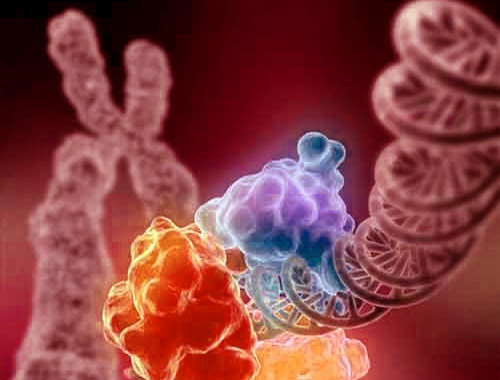Genetic Variants in Detox Enzyme Could Explain Long COVID and Severe SARS-CoV-2 Cases
Nikhil Prasad Fact checked by:Thailand Medical News Team Jul 26, 2025 6 months, 4 weeks, 2 days, 2 minutes ago
Medical News: A team of Mexican researchers has found intriguing genetic clues that may explain why some people develop severe COVID-19 or suffer from long-term symptoms long after the initial infection. The study, a systematic review led by experts from the Instituto Nacional de Enfermedades Respiratorias (INER), the Instituto Nacional de Pediatría, and the Instituto Politécnico Nacional in Mexico City, examined genetic variants in the glutathione S-transferase (GST) family of enzymes—key players in our body’s detox and antioxidant defense systems.
 Genetic Variants in Detox Enzyme Could Explain Long COVID and Severe SARS-CoV-2 Cases
Genetic Variants in Detox Enzyme Could Explain Long COVID and Severe SARS-CoV-2 Cases
Glutathione S-transferases help clear harmful toxins and reduce oxidative stress, which is the buildup of damaging molecules in our bodies. During COVID-19 infection, the body’s immune system can generate overwhelming levels of these toxic compounds, worsening inflammation and organ damage. This
Medical News report sheds light on how specific genetic weaknesses in GST enzymes could make certain individuals more vulnerable to severe complications or prolonged illness from the virus.
How GST Gene Variants Impact COVID-19 Outcomes
The study reviewed 462 articles published between September 2020 and February 2025 and selected ten that directly investigated links between GST gene polymorphisms and COVID-19 or long COVID. Among these, four studies focused on acute COVID-19 severity, while six dealt with long COVID.
One key finding was that people with a genetic variation called the GSTT1 null genotype had a significantly higher risk of death from COVID-19. Another variation, involving the GSTM1 and GSTT1 genes together, also showed a clear link to increased mortality. However, not all studies agreed on the role of these genes in determining how sick a person gets, with some finding no association between these mutations and disease severity.
Interestingly, other variants such as GSTO1 and GSTO2 were associated with a greater likelihood of getting infected with SARS-CoV-2, although they didn’t always predict how severe the disease would be. On the flip side, some gene combinations seemed to offer protection—individuals with certain GSTP1 or GSTM3 gene forms had a lower risk of developing COVID-19 altogether.
Long COVID and Genetic Susceptibility
The researchers also explored how these gene variants might affect people after they recover from the initial infection. One study followed patients for three months post-COVID and found that those with the GSTM1 null genotype were more likely to experience "brain fog." Meanwhile, other genetic profiles appeared to protect against long-term symptoms like muscle pain.
The review also emphasized that COVID-19 depletes natural antioxidants like glutathione, leaving the body in a vulnerable oxidative state. If a person’s GST genes are defective, this inability to clear harmful molecules could explain lingering symptoms in long COVID. Supporting
evidence from other studies confirmed ongoing oxidative stress in post-COVID patients, with reduced antioxidant enzymes and elevated markers of cellular damage.
Conclusion
This research underscores the critical role that our genetic makeup—specifically variations in GST detox genes—may play in determining how our body responds to both the acute and long-term phases of COVID-19. While some genetic variants appear to heighten risk for severe disease or prolonged symptoms, others might offer protection. Understanding these patterns could eventually lead to more personalized approaches in treatment and prevention. However, more diverse studies across ethnic groups and GST enzyme families are needed to fully unravel this complex relationship.
The study findings were published in the peer reviewed journal: Antioxidants
https://www.mdpi.com/2076-3921/14/8/912
For the latest COVID-19 News, keep on logging to Thailand
Medical News.
Read Also:
https://www.thailandmedical.news/news/glutathione-depletion-worsens-tuberculosis-in-liver-and-spleen
https://www.thailandmedical.news/news/targeting-glutathione-peroxidase-as-a-game-changer-in-pancreatic-cancer-treatment
https://www.thailandmedical.news/news/glaucoma-news-japanese-study-finds-reduced-levels-of-glutathione-in-glaucoma-patients-suggesting-that-excessive-oxidative-stress-plays-key-role
